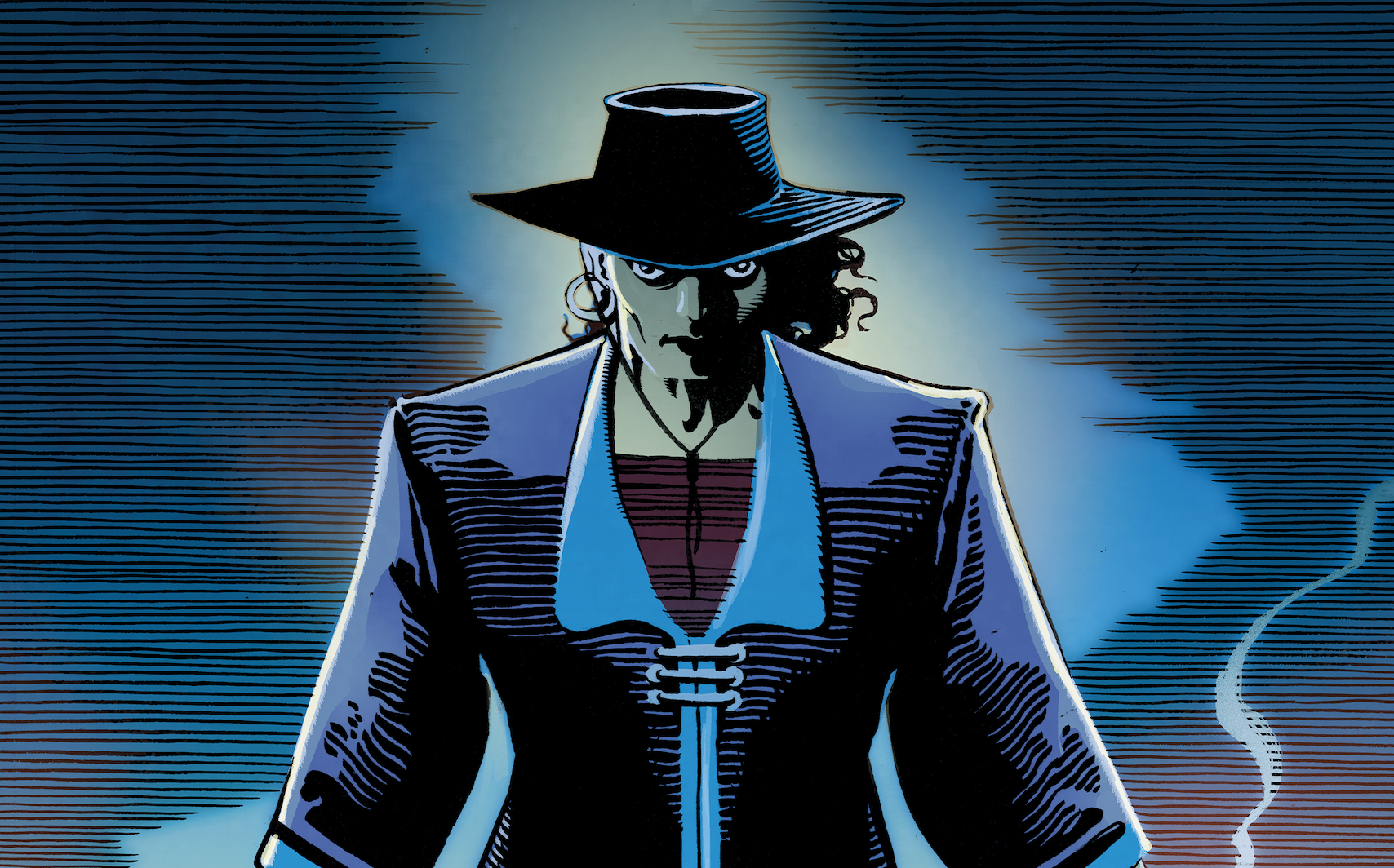
It seems bizarre that such a heated and polarized topic like abortion, well known to MANY Americans, is very rarely brought up in fictional story lines in the entertainment world. While Hollywood is often touted as a beacon of liberalism and progressive values (and it is in many respects) when it comes to reproductive rights and issues around a woman’s body, we are still very far behind.
There are a few mainstream examples of movies and TV shows tackling abortion: ‘Obvious Child’ starring Jenny Slate, ‘Orange Is The New Black‘, ‘Scandal’, and of course the 1996 film starring Cher and Demi Moore ‘If These Walls Could Talk’. Of course, this is by no means an exhaustive list, but they are particularly popular pieces of entertainment that have managed to show abortion as more than a black and white decision.
Now we can add ‘Jane The Virgin’ to the mix. In season 3, the main characters are confronted with the knowledge that Jane’s mom, Xiomara, had an abortion. It’s not the first time the show has touched on the issue. Back in season 1 Jane’s grandmother confessed she had asked Xiomara to get an abortion when she found out she was pregnant at 16, but admits she is thankful she decided to keep the baby.
In the season 3 episode, we don’t see Xiomara getting the procedure. Instead it is explained to the viewers via the show’s narrator, and the scene becomes more about how the women in the family deal with the decision she made.
It was a big deal for the very Catholic grandmother to admit this, which is why it is important to see this particular show not just allude to the reality of abortion even in conservative religious families, but portray it actually happening. The show (which, for those who aren’t watching, is filmed in the style of a comedy/Telenovela) also was able to discuss abortion in a Latino family and the cultural dynamics specific to this community.

The reviews from major media outlets have mostly been very positive, and it seems to mirror a lot of what is happening in the real world when it comes to abortion and the situations that lead to women seeking it out. Journalist Denicia Sam Cadena from NBC News, a queer, Catholic woman, describes the ‘Jane The Virgin’ episode as “thrilling”.
“This storyline spoke to the reality of how Latinx and Chicanx families make decisions about abortion – thoughtfully and with the support of our chosen families…Representing the real lives of Latinx, including abortion, not only makes for great television but is also an important step in our work for reproductive justice,” she wrote.
“This is one of Jane’s strongest, and most subtle, political acts: There’s no drawn-out question about whether or not Xo should have the abortion. It’s not a tortured decision, and she has no regrets…Of course, there are many female characters on TV who have decided to get abortions without guilt, but ‘Jane the Virgin’s’ episode feels so revolutionary because it shifts attention to the stigma that often surrounds the procedure,” writes Kimberly Truong of Refinery29.
The Washington Post’s Bethonie Butler said the episode was “TV’s most nuanced discussion of abortion”. TV Guide’s Sadie Gennis said “‘Jane the Virgin dismantles the notion that abortion is something to be ashamed about”.
Sadie says the show’s portrayal pushes viewers to think about abortion beyond the binary terms often espoused in political or religious discussions, and instead allows audiences to recognize the many facets involved in a woman making such a choice.

“The notion of a woman getting an abortion without an internal struggle — not because she’s thoughtless, but because she knows herself that well — and without any feelings of uncertainty remains revolutionary…Jane extends this conversation by exploring how the backlash to getting an abortion can sometimes be more distressing than the decision itself. Because as much as women are told they can be anything these days — even President of the United States — they are still socialized to feel guilty whenever they fail to live up to constructed ideal of how to be a “good” woman — an arbitrary benchmark that encourages women to value other people’s feelings as much (or sometimes more) than your own desires,” she writes.
She also points out that in 2015 alone, there were 16 different American TV shows which discussed abortion which is worth talking about not just because of the topic itself, but the way it was handled. In the majority of shows which tackle crisis pregnancy situations, it usually and predictably ends with the woman deciding to keep the baby, portraying them as heroes for adhering to the socialized, patriarchal norms thrust upon them. They are the “good” women.
Shows such as 1972’s ‘Maude’, popular teen series ‘Degrassi’, ‘Friday Night Lights’ and ‘Six Feet Under’ have discussed the drama of deciding whether to have an abortion, but ‘Jane The Virgin’ and some of the aforementioned contemporary examples have gone further to show just how normal it is in our culture, in a bid to strip away the stigma and myth that seems to dominate reproductive conversations.
‘Jane The Virgin’ showrunner Jennie Snyder Urman spoke to Vanity Fair about the episode and how they have Planned Parenthood consult with them in order to portray abortion in an accurate and nuanced manner. She said that although the show had discussed one side of this issue, where we see Jane deciding to keep a baby from an accidental pregnancy (due to a mistaken insemination) they felt it was important to discuss the other side, through the varying perspectives of the main characters involved.

“We had a character who felt one way, and we had a character who felt another way—so we had a real opportunity to understand and empathize with both of their points of view. We tried really hard to have a balance—to give Alba a chance to say what she wanted to say, to give Xio and them [a chance] to show that the family’s love is going to get them past the fact that they don’t agree on everything,” she said.
One of the most compelling, yet still controversial for many, aspects of the current abortion conversation is the acknowledgement that a large number of women do not regret their decision and do not suffer greatly afterward.
“For every woman, abortion is a different choice, and they go through different emotions. I’ve seen a lot of the torment and the torture of making that choice or considering that choice, but what I hadn’t seen is that some women who make that choice are relieved,” said Jennie.
“I didn’t want it be really dramatic. Xo is not tortured. It is not a tortured abortion. It is not an abortion where she is unclear about what she wants or unclear about her choice. She’s very clear and most abortions are that. I feel like that’s an important thing to respect on TV as well. If you’re sure, you’re sure,” she told The Hollywood Reporter.
Given the increased amount of attention on abortion since those now-debunked “undercover” videos reportedly showing Planned Parenthood employees discussing the sale of baby parts (which has been proven false by a Congressional hearing as well as 2 major court cases which decided to take action against the fraudulent actions of the video makers), as well as the presidential election which saw Democratic nominee Hillary Clinton talk powerfully and expertly on the topic of late term abortion in the final debate in October, it is no surprise we are seeing so many women speaking out about their individual experiences in public and online, slowly chipping away at the oppressive hold that the Religious Right has had over this topic for far too long.

“This is the first time we’ve ever seen a Latina speak openly about her decision to have an abortion on primetime network television. This should not be revolutionary — Latinos, like the majority of the population, believe that the decision to have an abortion should be left to a woman in consultation with her family, her faith, and her doctor,” said Caren Spruch, director of arts and entertainment engagement at Planned Parenthood.
Susan Rinkunas at NY Mag’s The Cut expanded on what she said by explaining just how entertainment has failed to accurately represent the real, and more nuanced experiences of women who choose abortion.
“Xo’s experience was much more realistic than what we usually see. A study released last year found that abortions on TV usually don’t reflect reality: The fictional women who had them between 2005 and 2014 were often younger, whiter, and wealthier than women who terminate pregnancies in real life. Only 15% had children, whereas 61 % of women seeking abortion are already parents. Almost 90% of TV characters who got abortions were white, but in the real world, 36% of abortion-seeking women are white, 30% are black, 25% are Latina, and 9% are classified as other,” she writes.
There is an incredible and unique type of power the entertainment industry has, that almost all other industries do not. The power of visual representation can shape an entire generation, as we have seen the impact many cult shows have had in society. What ‘Jane The Virgin’ has done is widen the gates for women’s reproductive rights to be a little less intimidating, offensive and divisive, by offering a realistic, complex portrayal outside of the the polarizing political setting that makes us all so weary.
“The show has already taken on many other important conversations around sexual and reproductive healthcare, including fertility care, pregnancy care, conversations around sexual orientation, dating multiple partners, the decision to have sex and so much more…We need more pop culture depictions of the realities of our lives, depictions that celebrate the specific, complicated ways we deal with challenges,” writes Denicia Sam Cadena for NBC News.

















